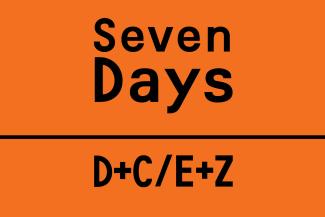In brief
News of the week

More ADB money for poorest countries in Asia-Pacific
The Asian Development Bank is set to increase its lending capacity by almost 40 %. Its two main financial instruments will be merged by January 2017, ADB President Takehiko Nakao said in an internal memo sent to staff, as several media have reported. The measure will increase the bank’s lending operations by more than 38 %, from $ 13 billion to $ 18 billion. The Financial Times reports that Nakao aims to strengthen the Bank’s support of the poorest countries, focussing mainly on infrastructure. The top recipients of grants and loans so far are Pakistan, Bangladesh, Vietnam, Nepal and Cambodia. Merging the funds has to be approved by the bank’s board of governors.
Sources: Financial Times, Devex
US and UK diverge on AIIB
The British government has indicated that it wants to be among the founding members of the Asian Infrastructure Investment Bank (AIIB). The Chinese government is promoting the establishment of the AIIB as an international institution. The new bank would compete with multilateral donor agencies such as the World Bank and the Asian Development Bank, in which the established economic powers wield strong influence.
So far, the UK is the only G7 nation to have expressed an intention of joining the AIIB. George Osborne, Britain’s finance minister, said: “Joining the AIIB at the founding stage will create an unrivalled opportunity for the UK and Asia to invest and grow together."
The step is controversial, however. An official of the US administration told the Financial Times: “We are wary about a trend toward constant accommodation of China, which is not the best way to engage a rising power.” The White House is not opposed to the AIIB as such, but worries that it may become an instrument of Chinese foreign policy. Washington has appealed to London to ensure that the AIIB lives up to World Bank standards.
Sources: BBC, FT
Boko Haram joins ranks with ISIS
Boko Haram has declared allegiance to ISIS, the Islamist militia active in Syria and Iraq. The leader of the Nigerian militants, Abubakar Shekau, swore obedience to the “caliph of Muslims” in an audio message promoted via Twitter. ISIS, which rules a self-declared caliphate in parts of Iraq and Syria, welcomed the pledge. At the same time, its spokesman Abu Muhammad al-Adnani urged Muslims to support Boko Haram in west Africa, and claimed that the ISIS was growing in strength and expanding.
Observes believe that Boko Haram’s pledge serves propaganda purposes and doubt that the Nigerian organisation will actually take orders from ISIS. Boko Haram has been waging a six-year military campaign to carve out an Islamic state in northern Nigeria. Security is the biggest issue in the current election campaign. The country is set to vote for a new president on 28 March.
Source: The Guardian
Progress in Columbian peace process
The peace process in Columbia is making progress. President Juan Manuel Santos announced that the army will suspend bombing raids against the Revolutionary Armed Forces of Colombia (FARC) for a month. He said the move was in recognition of the fact a unilateral ceasefire by the left-wing group was holding. FARC had declared a ceasefire in December.
The two sides have been holding peace talks in Cuba since December 2012. They have reached partial agreements on a number of issues, including the drugs trade, land reforms and broader-based political participation. At the latest meeting that ended on 7 March, they agreed to clear the battlefields of landmines in cooperation. Colombia is one of the most mined countries in the world. Another round of peace talks is scheduled to begin on 17 March.
The civil war between FARC and the government has been going on for 50 years. 220,000 people have died and millions were displace.
Sources: BBC, Al Jazeera
Aid groups say international community is failing in response to Syria
International aid agencies have accused the UN Security Council (UNSC) of letting Syria down. In a report called Failing Syria, 21 organisations including Oxfam and World Vision criticise the Security Council for not implementing resolutions to protect and assist civilians. Three UN resolutions were passed last year, meant to end arbitrary killing and torture and to allow aid agencies better access to persons in need. However, these resolutions “have been ignored or undermined by the parties to the conflict, other UN member states, and even by members of the UNSC itself”, the report states.
According to the agencies, 2014 was the worst year of the Syrian conflict so far. The strife started in March 2011 with protests against the government and descended into a civil war that has killed more than 200,000 people. The report states that humanitarian funding has decreased: whereas Syrians got about 71 % of the funds needed to support civilians in the country and abroad from international sources in 2013, the share declined to 57 % last year.
Sources: Reuters, BBC, taz
These items were compiled by Katja Dombrowski and Hans Dembowski on the basis of international media coverage.











